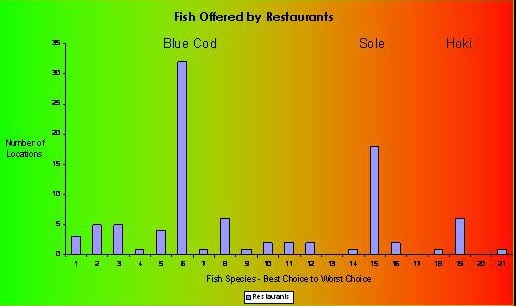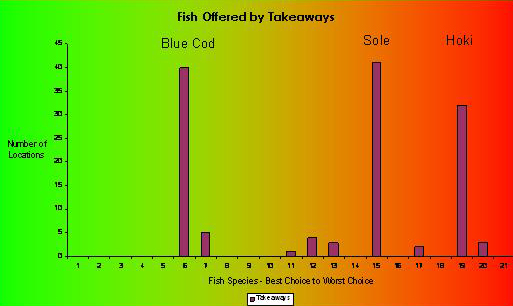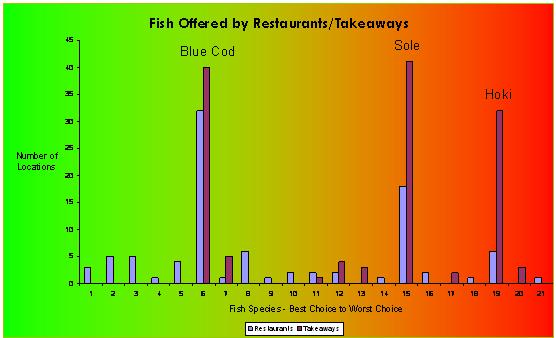Would you like sustainability with that?
Guest Blogger: Mark Hanger – sustainable fish-supporter & secretary of the Dunedin Branch
Fishing has come a long way.
It’s easy to lapse into sepia-tinged visions of the last of the hunter-gathers pitting themselves against the elements, rod in hand, waiting patiently for a tug from the inky depths, however the reality lies light-years from this romantic image.
Fast-forward to 2008, and you’ll find sophisticated technology pin-pointing shoals of fish, long-lines baited with thousands of hooks flung into our seas and big sock-like nets being pulled through our waters collecting up everything from sea-lions to sharks.
Thanks to these practices several marine species are now endangered – something I was only dimly aware of until I came across the Best Fish Guide.
Profiling the practises of 75 commercial fisheries, this wallet –sized booklet guides fish eaters towards making informed decisions about the fish they buy by ranking them in terms of sustainability.
A dog-eared copy of the guide sits in my back pocket, and is routinely consulted at super-markets, hotels, restaurants & takeaway joints when I am away leading nature tours in NZ and Australia.
Now empowered as a consumer, I decided to take the guide one step further by using it to build a picture of the health of the restaurants in my region.
One afternoon I picked up my blower and conducted a snap-quiz of my local restaurants in Dunedin to see what fish dished up.
Every person I asked responded candidly to my questions and slowly I began to create a snapshot of the type of fish served up.
Here’s a breakdown of what I discovered from the 72 restaurants and 54 takeaway outlets in the Dunedin area –
- Twenty one species of fish were served.
- The vast majority of venues sold Blue Cod, with significant numbers also offering threatened catch species such as Sole and Hoki. Overall, however, restaurants offered predominantly fish from sustainably managed fisheries
- Takeway outlets offered a much narrower range, and also were very commonly restricted to Blue Cod, Sole and Hoki. As the graphs of these results show, a considerable proportion of the fish sold in Dunedin is of non-sustainably caught species
Following the survey, I sent out letters to all the various restaurants and outlets of our findings and to ask outlets to choose their fish based on environmental sustainability.
I enclosed a copy of the Best Fish Guide, along with an enlarged poster version of the actual rankings, and asked that this was displayed for customers’ benefit.
Enforcement was never part of the plan, so I haven’t checked whether these are now on display however I do hope to return to these restaurants in a year’s time to award those that have opted to offer or sell only sustainably caught fish species. In total this exercise took me about a day.
A day for healthier seas, I couldn’t think of time better spent…



